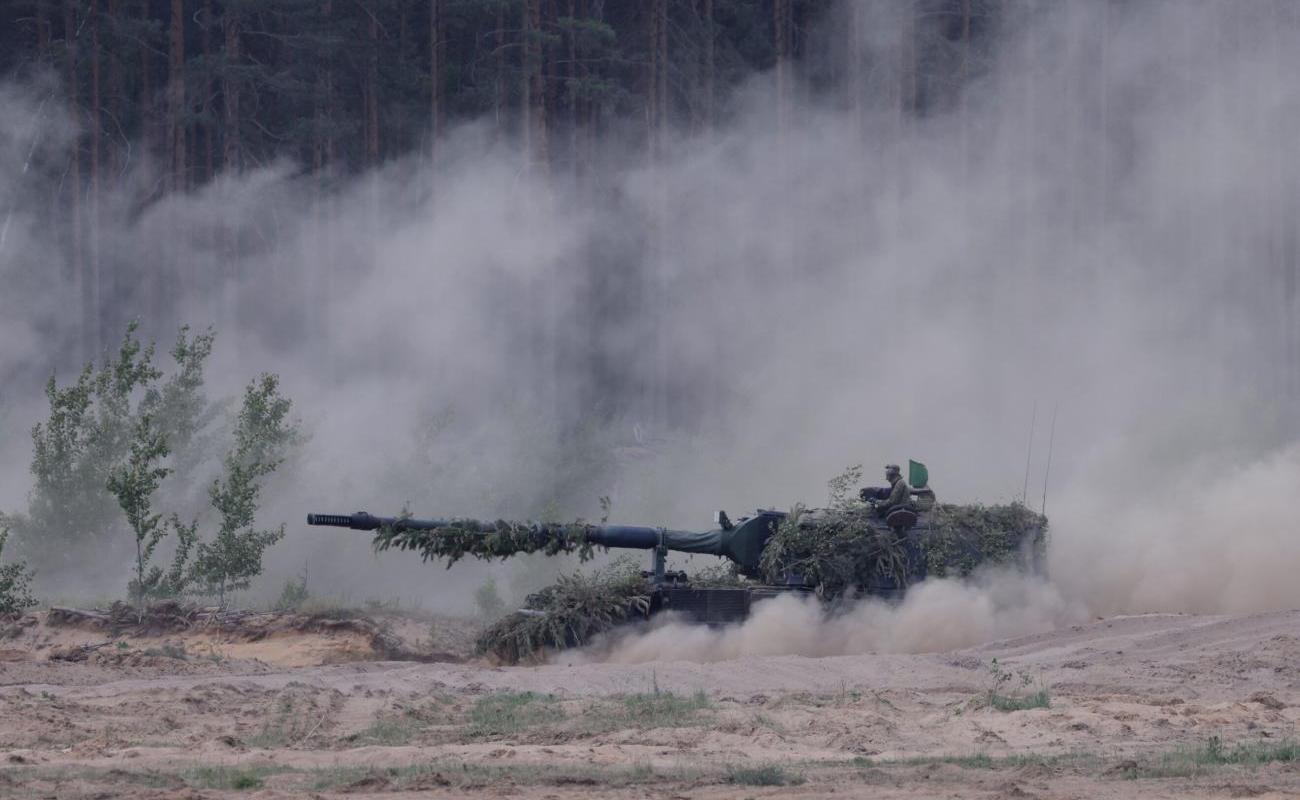Bracing for a Russian attack: EU defense chief wants €100B for weapons

EU Defense and Space Commissioner Andrius Kubilius wants the EU’s next seven-year budget to allocate “not far away from” €100 billion for defense.
That would be a massive increase — he called it “ambitious” — as the current seven-year budget of over €1 trillion has only €10 billion for defense.
It’s only one of the financial revolutions that Kubilius proposed in his interview with POLITICO. The broad changes are sign of how much Russia’s invasion of Ukraine has upended the EU’s budget and its priorities.
It’s also the reason Kubilius has a job. He’s the EU’s first defense and space commissioner — a job created to better integrate the bloc’s fragmented defense industry, increase spending, send more weapons to Ukraine, and improve defense coordination with NATO and the United States.
Giving Ukraine the support it needs to win the war is key, he said in his first interview since starting his job this week.
“We need to be ready for the possibility of Russian aggression,” said Kubilius, a two-time prime minister of Lithuania and a Russia hawk. “If we fail in Ukraine, then of course, the possibility of Russian military aggression against the EU member states can increase.”
He also warned of Russia’s ongoing campaign of hybrid attacks. “We [are] better prepared in conventional war defense” than in defending “the minds of our people,” he said.
Kubilius underlined that the EU’s enemy is Russian leader Vladimir Putin, not U.S. President-elect Donald Trump — a message he has also hammered home to the European Parliament.
He said he was “hopeful” that the new U.S. administration will realize that the West is under attack from an “axis of authoritarian countries” that includes “Russia, Iran, North Korea and somewhat China.”
More money
Revamping the bloc’s arms industry after decades of post-Cold War somnolence will require a lot of money. Commission President Ursula Von der Leyen has talked of increasing Europe’s defense spending by an additional €500 billion over the next decade.
Finding that money won’t be easy, but without it all the defense plans remain “theoretical,” Kubilius warned. The new cash could come from boosting the bloc’s budget, from issuing common debt, or from easing rules for institutions like the European Investment Bank to make it easier to invest in arm-makers — or from some combination of those ideas.
Kubilius suggested that the EU needs to look at its fiscal rules when it comes to defense spending. Currently, the bloc limits member countries to running budget deficits of no more than 3 percent of GDP and having public debt of no more than 60 percent of GDP.
Countries such as Greece, Poland and Italy have called for defense spending to be excluded from the deficit calculation so countries don’t crash into the EU limits.
Kubilius stressed that it’s not his decision to make, but added that “if somebody would ask my opinion I would say, ‘Yes, we need to do that.’
“When you are facing a crisis, you need to look at how you can have some kind of flexibility in spending on some specific issues,” he said, adding that he has already been talking with Budget Commissioner Piotr Serafin, a Pole who understands that “defense is really a priority.”
Teaming up
A key part of Kubilius’ job is ensuring that Europe’s defense industry, fragmented among many member countries, is better coordinated.
The EU’s new initiative, the €1.5 billion European Defence Industry Programme, is supposed to help accomplish that. However, EU member countries are squabbling over how much access non-EU companies should have to the cash.
Some countries — led by France — want the fund to have a strict Buy European clause, while others, including Poland, the Netherlands and Germany, are open to more flexible eligibility criteria.
Kubilius also favors flexibility. “We need to develop our own industry ... and that is not protectionism,” he argued. However, he admitted that many key weapons systems, such as long-range precise strike capabilities, are “simply not produced” in the bloc.
“Definitely, we shall need to procure from the United States or from other partners,” he said, adding: “When we are saying we are buying European that does not mean that we shall not go around to look for some kind of weapons which we simply are not producing or producing in too small quantities.”
The EU’s new get-tough approach to Russia also means a much closer relationship with NATO. Although both institutions are headquartered in Brussels, they’ve traditionally had an arms-length relationship with each other, with the alliance looking after military issues while the EU focuses on trade and regulation.
Now Kubilius wants better ties, saying the EU should look to NATO’s upcoming report on capability gaps — which will call for 49 new brigades, 1,500 tanks and 1,000 artillery pieces — as a guide for the EU’s industrial spending priorities.
It’s all part of a program of preparing for war.
The authoritarians are “uniting themselves, and we need to unite ourselves,” Kubilius said.
